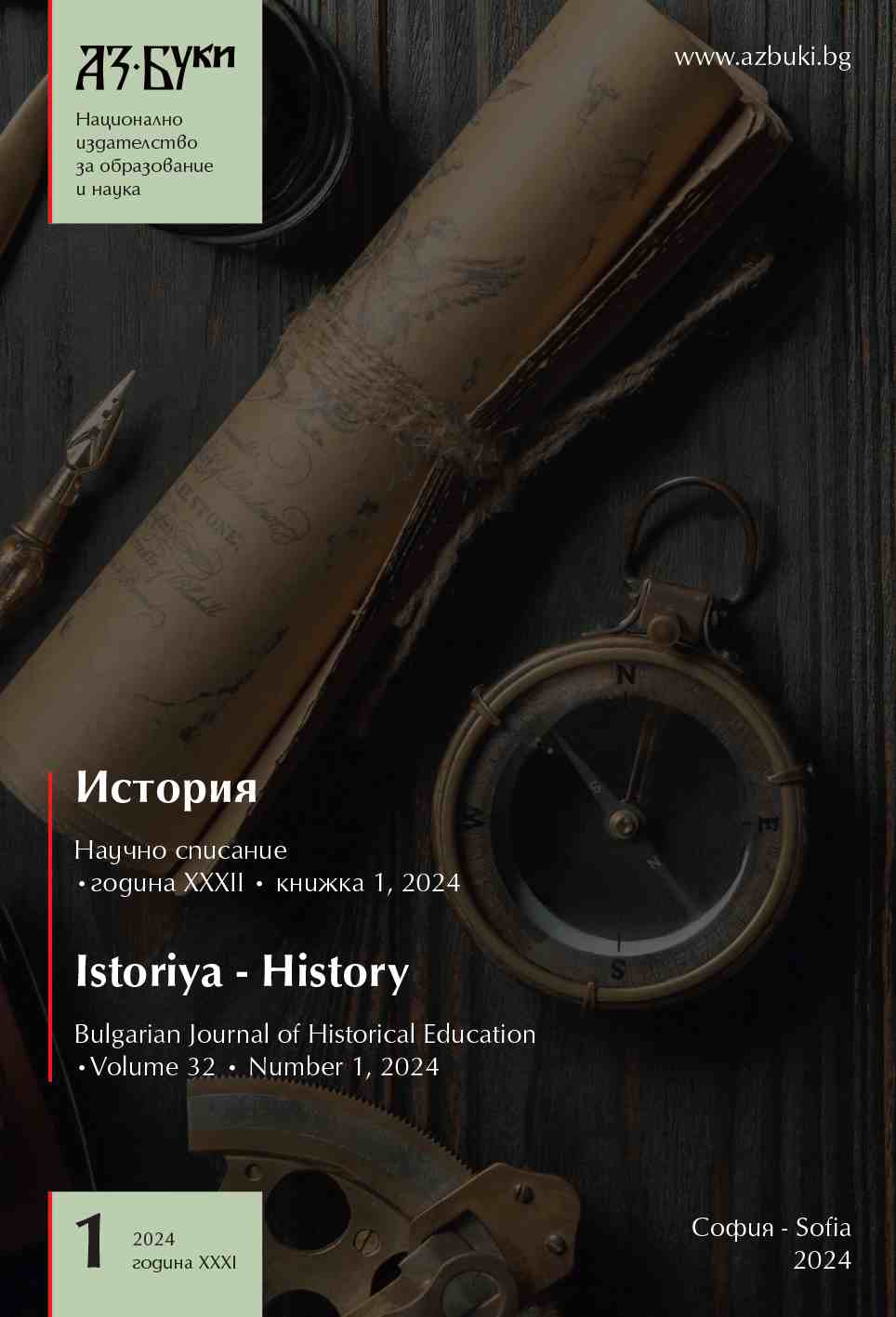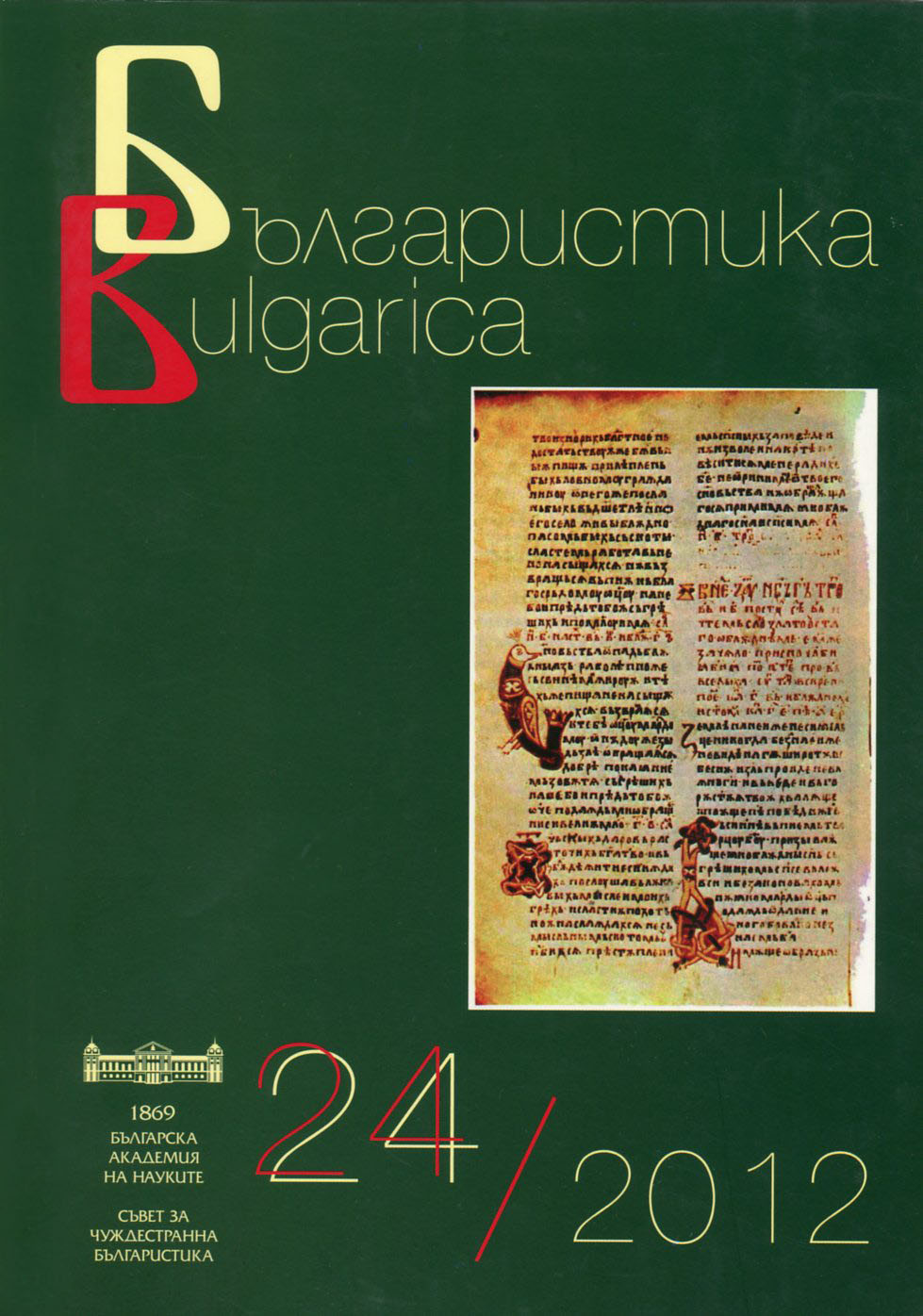
Научна периодика 2011–2012 г.
Content of the main Bulgarian scientific journals for the current year in linguistics, literature, history, folklore, ethnography, archaeology and art studies
More...We kindly inform you that, as long as the subject affiliation of our 300.000+ articles is in progress, you might get unsufficient or no results on your third level or second level search. In this case, please broaden your search criteria.

Content of the main Bulgarian scientific journals for the current year in linguistics, literature, history, folklore, ethnography, archaeology and art studies
More...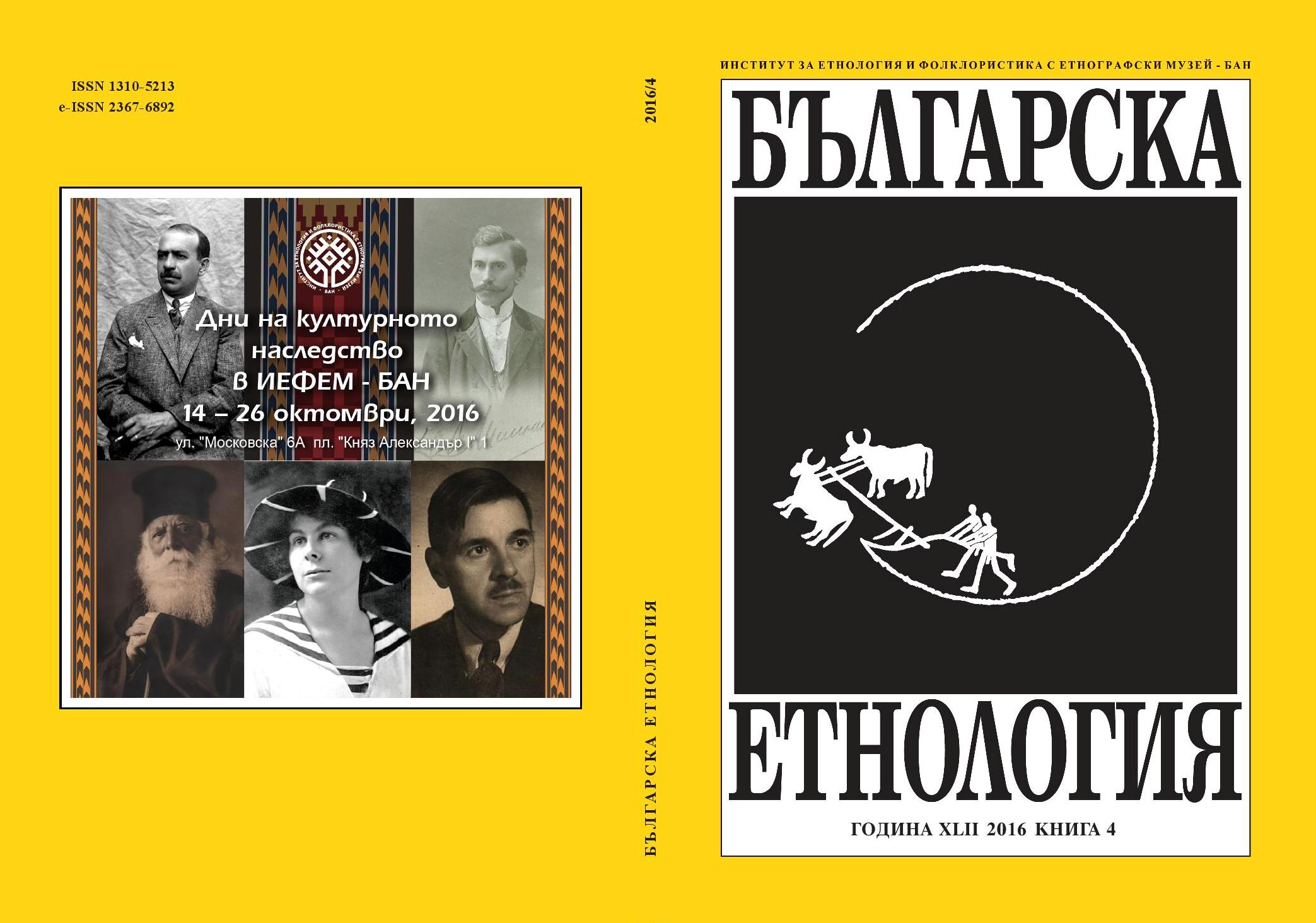
The article analyses the process of choosing different strategies of identification bythe Bulgarians in Ukraine. The present state of the “identification processes” againstthe background of the “war of memory” and the “invented traditions” places themamong the priority problems of science and politics.The subject of analysis are the specifics of the formation of collective memorywhich are at the root of the choice of identification strategy: commemorative practices,mechanisms for memorialization of the past, the correlation between the localgroup history and the national strategies of Bulgaria and Ukraine. The conclusionis that the choice of identification behaviour is influenced by the efficiency of thesocial adaptation under the specific historical circumstances. The social resources atdisposal of the group in any particular moment influence the choice of vectors of thecollective memory and predetermine the formation of defensive practices aiming topreserve the group.
More...
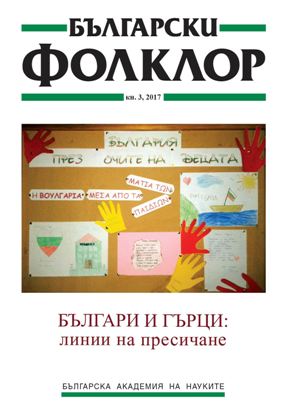
The Balkan Wars (1912–1913) triggered in Bulgaria and Greece unseen enthusiasm and hope for prosperity, as well as for the ‘liberation of our brothers living under yoke”. In the Bulgarian society the Balkan Wars have left a deep emotional trauma. But how does the Greek society evaluate these events? How durable are the Greek military victories and do they nurture new internal or external problems? How do the people in Greece evaluate their own contribution to the success in the Wars and how do they see themselves and their neighbors? What is the relationship between tradition and modernity and what is the place of humanism in this military clash? Is the image of the war undergoing a process of democratization?Seeking for the answers of these and other questions, we decided to present a Greek album from the period. The album is dedicated to the Balkan Wars and remains poorly known. We hope that the analysis of the illustrations in it will enable us to trace the attempt of the authors of the album to influence the audience and will thus allow to see the Balkan Wars through the eyes of the Greeks from the beginning of the 20th century.
More...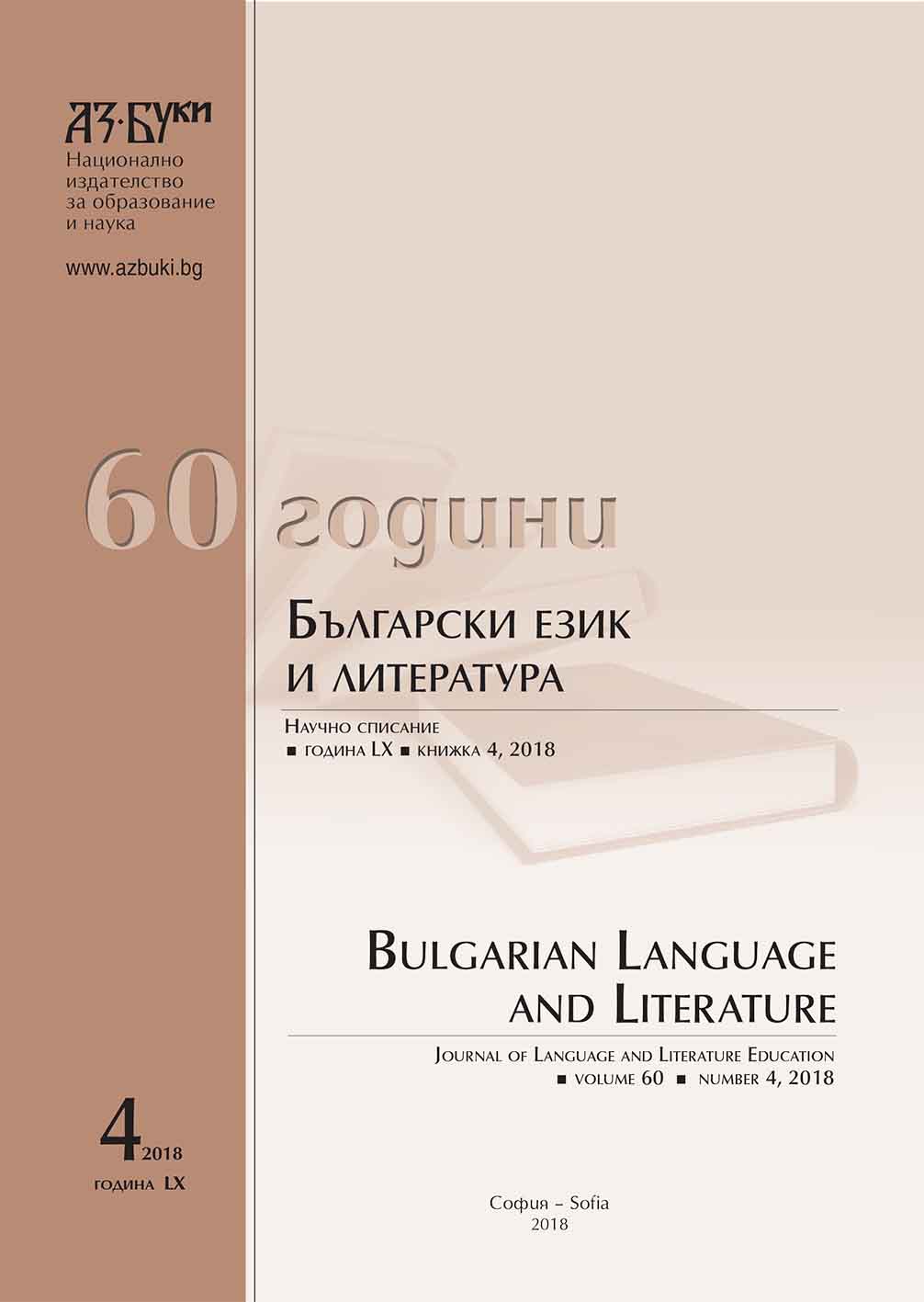
This article suggests an attempt to analyze some texts from the Bulgarian National Revival Periodic Press that interpret a „marvelous discovery“ - the typography. Its role and significance for the radical changes in cultural and literary communication, but also the resistances against it as something new, unknown and affecting someone‘s interests, are also examined. Through some texts by K. Fotinov, P. R. Slaveikov, N. Kazanakli is defended the concept of the typography as discovering new worlds, removing certain boundaries - spatial, temporal - and facilitating the touch to the foreign experience and its more comprehensive absorption, which are of particular importance in the conditions of the Bulgarian 19th century.
More...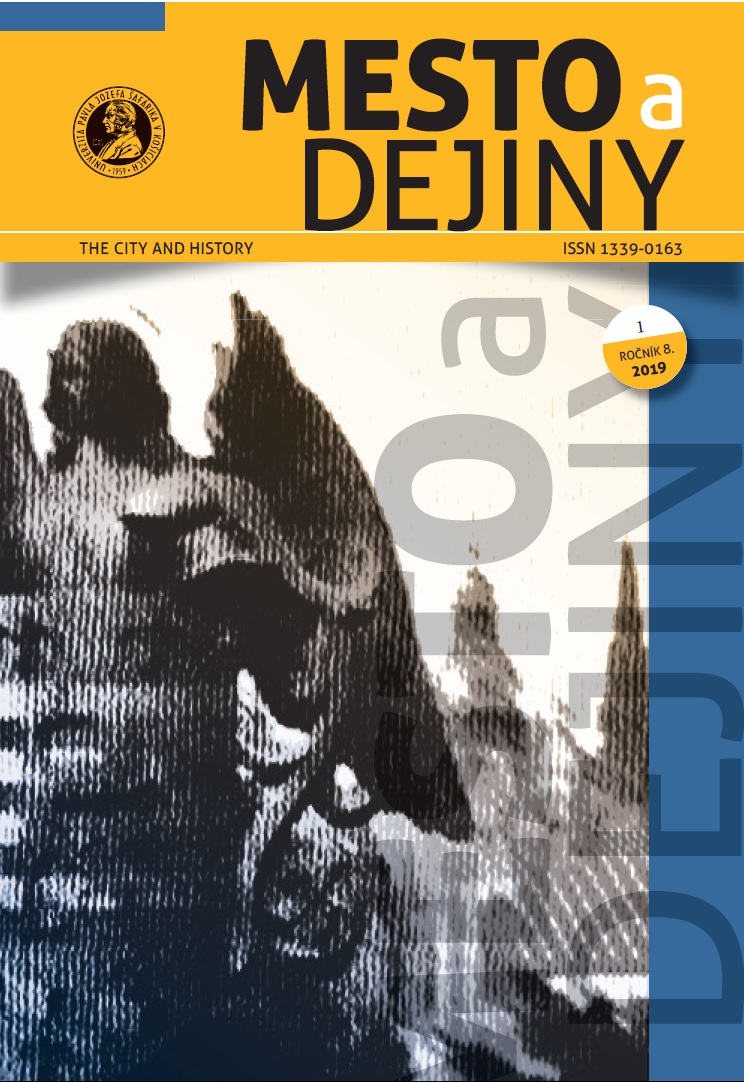
The extension of totalitarian and authoritarian regimes in the first half of the twentieth century, which hit most European states, required political interferences within the highest legislative and executive authorities of states as well as in local administrations and bodies of self-government. Legislative interventions resulted in the formation of new local political elites whose representatives, mostly recruited by the criterion of political reliability, held the defining positions and played the significant role in implementing anti-Jewish policy during the Holocaust era. The main aim of this contribution is the analysis of the mechanisms of legislative interventions into the creation of new local political elites in selected examples of Nazi-occupied countries (General Government, Protectorate of Bohemia and Moravia) and allied regimes (Slovak State and Hungary).
More...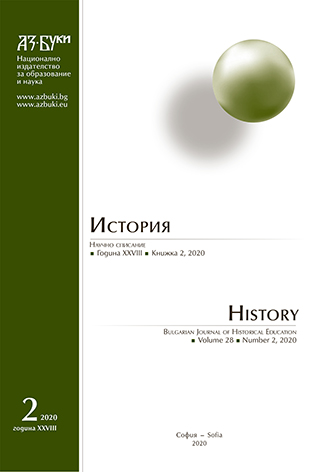
The purpose of this article is revealing the conditions and prerequisites for the “birth” of the entrepreneurial class in Sopot, Karlovo and Kalofer during the 18th-19th centuries. The main conclusion is that the combination of a favorable external environment and appropriate personal qualities make possible the appearance of people with enterprising spirit. In other words, Bulgarian Revival entrepreneurs from Sopot, Karlovo and Kalofer are born, but they are also made through the accumulated experience and knowledge.
More...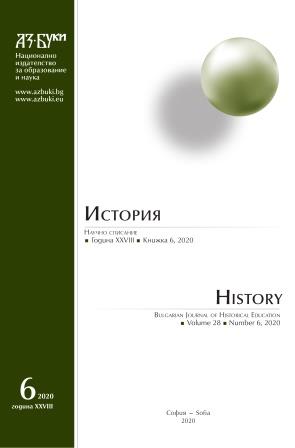
The article presents an unknown letter from the epistolary heritage of the Bogoridi family, in French in handwritten original, sent by Emanuel Bogoridi to his uncle Alexander Bogoridi, dated June 12, 1879, currently stored in the collection of the Bulgarian Historical Archive at the National Library “Ivan Vazov” – Plovdiv. The source and archeographic aspects of the newly discovered document are examined. In terms of content, the background of the idea of founding a museum, a library, an archive and a university in Eastern Rumelia and the involvement of one of the most famous European Slavic scholars in the person of Konstantin Irechek for this cause are presented. By publishing the letter in Bulgarian for the first time, it is included in scientific circulation.
More...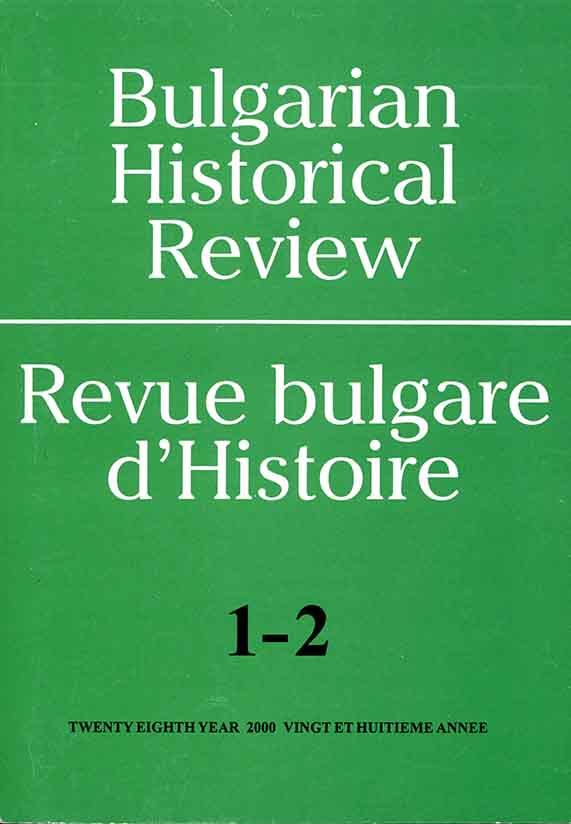
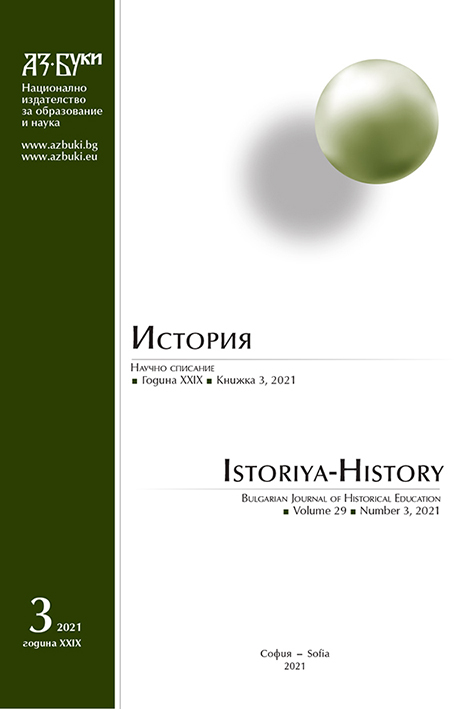
The article examines the activities of the established at the end of 1946 Pan-Slavic Committee in Belgrade which, however, lasted only a year and a half. The Committee was created with the intention of being the centralized and ruling body of the Kremlin-born Slavic Movement after June 22, 1941. The emergence of the Committee came at a time when relations between the partners of the Anti-Axis Coalition had begun to deteriorate, and this circumstance inevitably made a direct impact on the tasks it was assigned. After the final bloc division of Europe and the Tito – Stalin split, the very existence of the Pan-Slavic Committee became meaningless, since the political exploitation of the idea of Slavic unity no longer fitted into the new realities and this resulted in its abolishment in the mid of 1948.
More...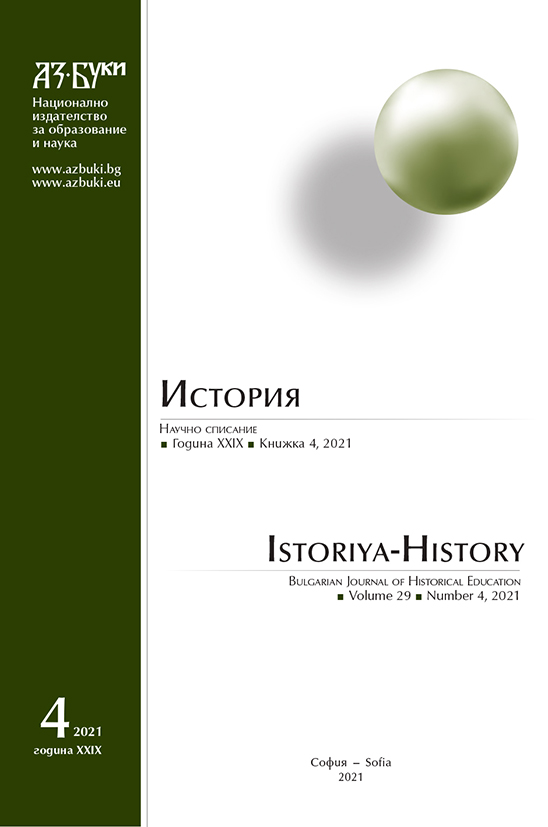
Based on a politico-economic analysis, the paper provides answers to important questions about the April Uprising of 1876: why the Bulgarians revolted, why many Bulgarians did not revolt, and why the uprising was relatively short as a time-span. According to the available primary sources the Bulgarians who revolted in April 1876 revolted because they were relatively wealthy and as such they had something to lose. Revolutionary sentiments, however, did not prevail in their political views concerning the Bulgarian question. Here comes the role of the propaganda lie about the authority planned massacre of the Bulgarians. As a result, live and property of the future rebels, were considered as endangered. The response to the threat is a risky and desperate anti-state uprising. The organizers of the uprising did not overcome the free-rider problem. The population in the insurgent settlements was left to pay the price of putting the Bulgarian question before Europe. Additional difficulties in the implementation of a relatively mass riot pose the short deadlines for its preparation. They resulted in high prices of and do not allow the supply of larger quantities of weapons and gunpowder.
More...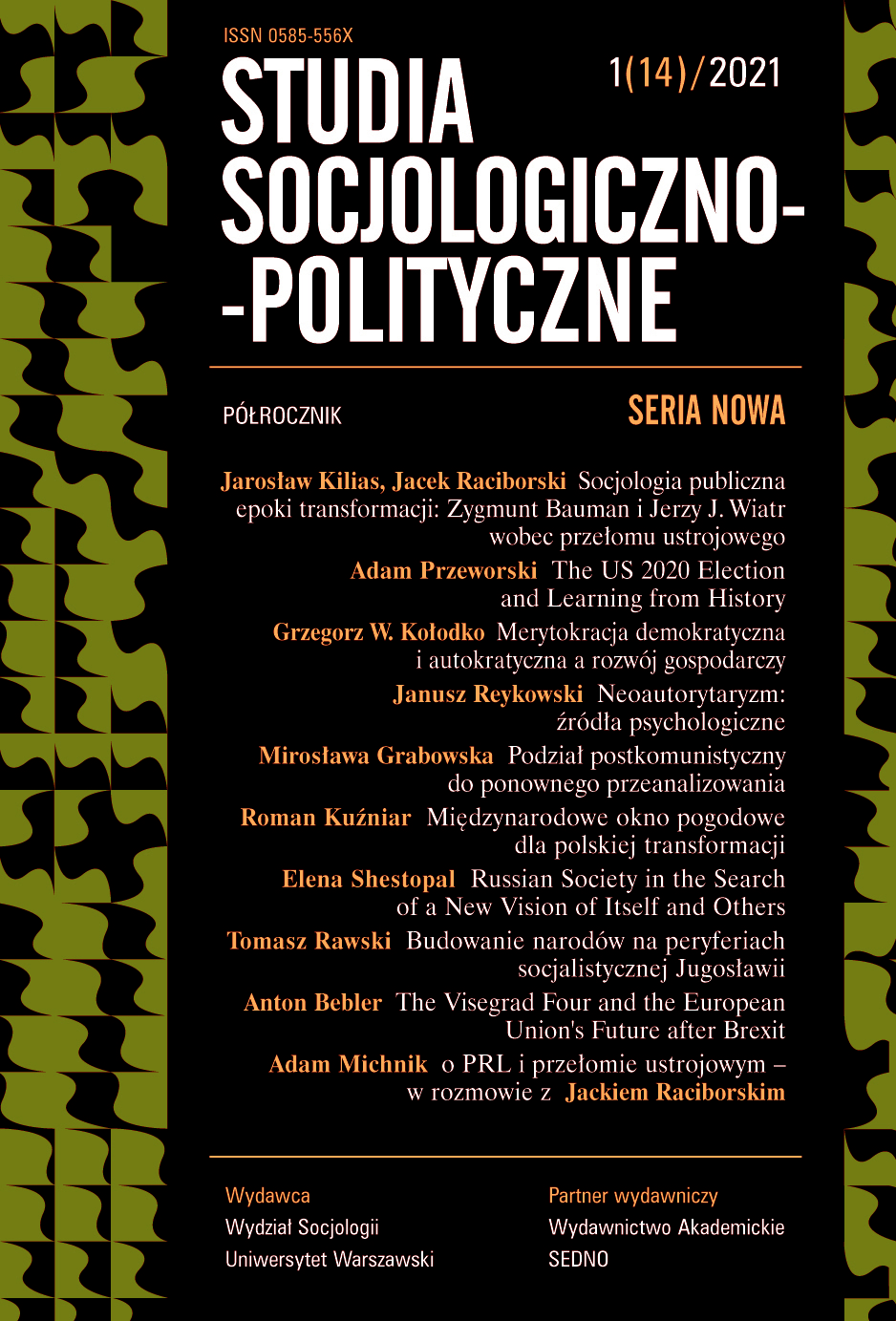
The main thesis of this essay is the assertion of the concurrence of the Polish transformation after 1989 with the world switch towards the liberal international order at that time. Poland was among initiators of these changes and hugely benefited from them. It applied to the establishment of the regime of the rule of law and the open market economy. The success of the Polish transformation and the rapid economic growth would have not been possible or they would have been limited without this external support.The main although not the only theoretical explanation framework to these processes is the liberal school of thought. Democratic regress in Poland (since end of 2015) and a turn to authoritarianism coincide with backsliding of the international liberal order. Unfavourable internal changes incapacitate Poland’s foreign policy as well as its international standing.
More...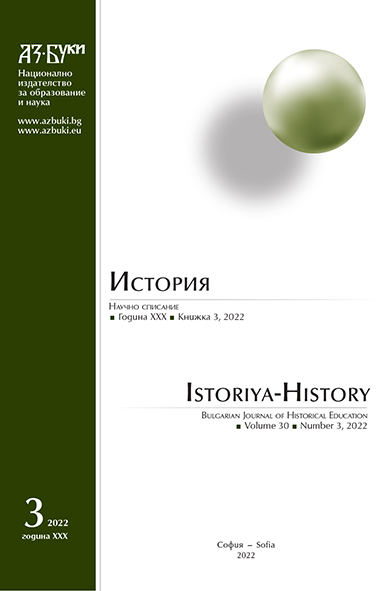
The scientific paper analyzes an anonymous report to the Bucharest newspaper “Narodnost” published as “Letter from Bulgaria” in two consecutive issues in March 1869. The author of the report has not revealed his real name but has nevertheless left specific indicative signs that give material reason to believe this person was Vasil Levski himself. The thesis formulated herewith is supported by relevant evidence. The anonymous report is an important historical evidence for the participation of Vasil Levski in the revolutionary detachment action of 1867. At the same time, its overall contents complement the insufficient sources about his first organisational tour in Bulgaria. The first part of the anonymous report is an authentic text written by Vasil Levski, which has remained unnoticed by the specialized historiography.
More...
Two of the most important and still unresolved issues in the history of the Bulgarian committee movement in the late 60s and early 70s of the XIX century are when the CBRC in Bulgaria (the Lovech`s Central Committee), was established and what`s happened to the private revolutionary committee in Lovech after the establishment of the Central Committee in the same town. The most common opinions are that the CBRC in Bulgaria was established in the second half of 1870, in the spring or the autumn of 1871. According to me, CBRC in Bulgaria was most likely established at the end of September 1871. As for the second question, many historians think that Lovech`s private revolutionary committee has been transformed into a Central committee of the revolutionary organization in Bulgaria. However, some historical sources allow us to think that in the period from the end of September1871 to the so-called General Assembly of BRCC (April 29 – May 4, 1872) in Lovech there was both a Central and a private revolutionary committee.
More...
The purpose of this study is to present unknown and little known facts about the participation of the Sofia representative Hristo Todorov Stoyanov in the Church National Assembly in 1871. He was one of the most active participants in the discussions on the draft statute for the management and structure of the Bulgarian Exarchate. His legal education, extensive knowledge of ecclesiastical and Ottoman legislation, and personal qualities enabled him to express a competent and reasoned opinion in the disputes and discussions that accompanied all meetings. As an advocate of the democratic views regarding the structure of the Bulgarian Church, Hristo Stoyanov supported the principles of electivity and interchangeability of governing bodies, as well as of active participation of the people in the management of the Bulgarian Exarchate. He demonstrated views and a mindset of a parliamentarian that were modern for his time. The experience he had gained contributed to his future success as a member of the Constituent National Assembly in Veliko Tarnovo, as well as of the First and Second Ordinary National Assemblies. Stoyanov was among the “builders” of Modern Bulgaria. He was also a minister (three times), Chief Public Prosecutor, Chairman of the Supreme Court of Cassation of Bulgaria, a publicist and a respected lecturer at the St. Kliment Ohridski University of Sofia.
More...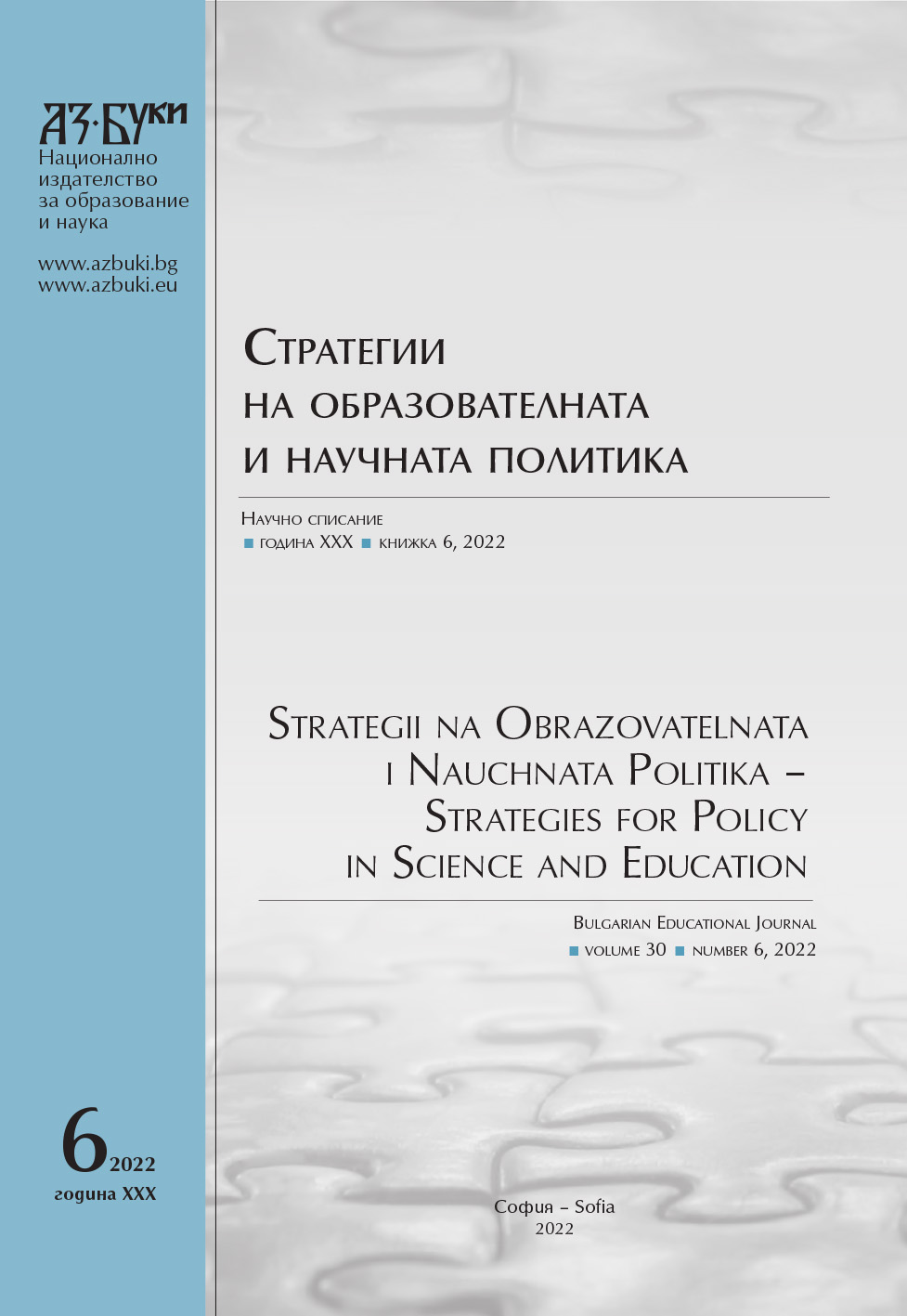
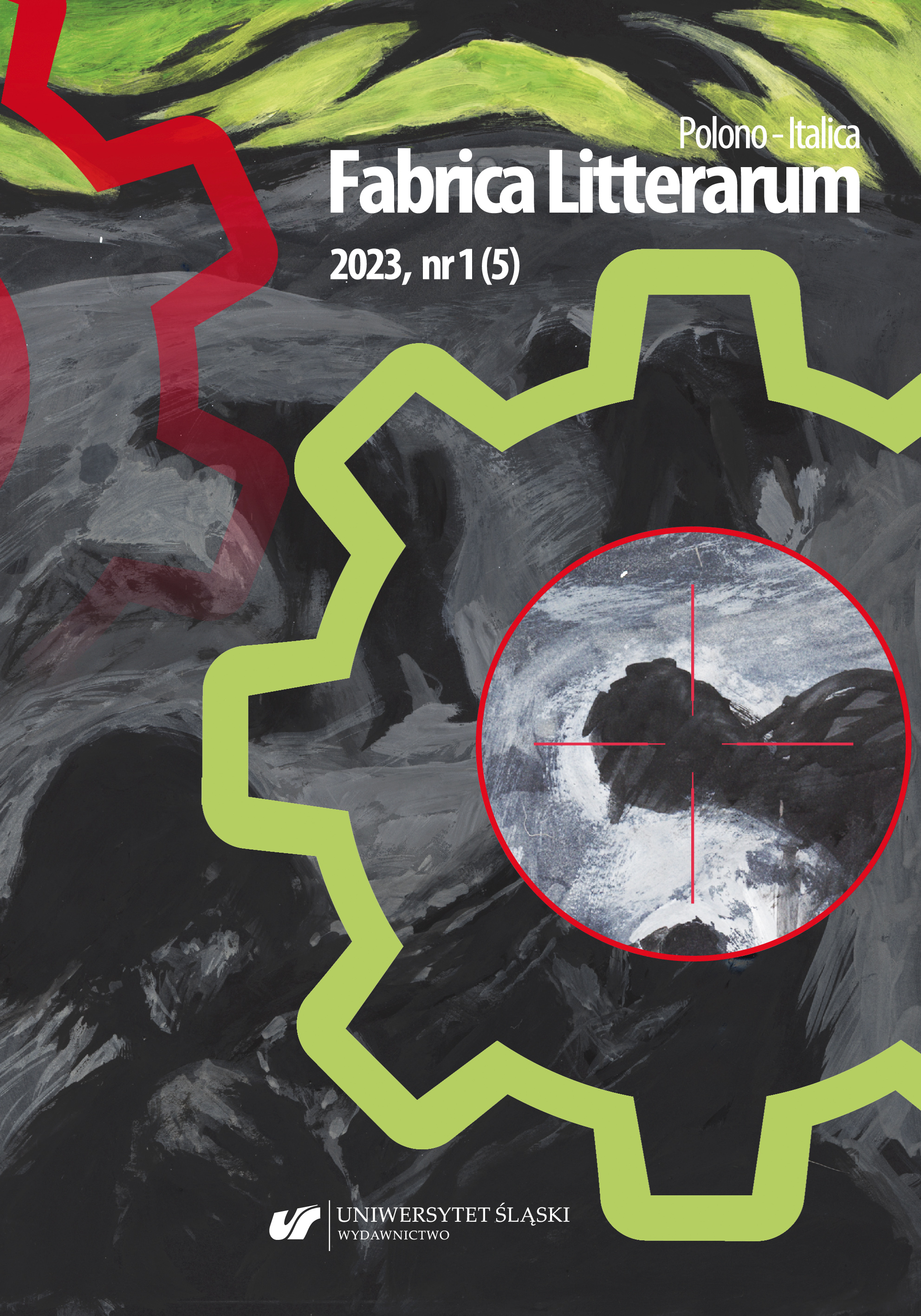
Through a critical analysis of J. Morawiecki’s Szuga. Krajobraz po imperium [Szuga. Landscape after the Empire], Paweł Rogalski ponders a number of questions: Does Russia still exist in the 21st century in the imperial discourse? Has the superpower paradigm, as a certain manifestation of anarchy and a fallen myth, not already been ruined or exhausted? Is the empire an episode necessary historically to balance forces in a global crisis? Is the war in Ukraine (2014 and 2022) perhaps the “new-old” founding murder of the Eastern civilization, incorporating the model of the Russian empire? Does ideology as a glue, instead of positively constructing the subjectivity of the community, contribute to building a new, dangerous phantasm of the empire? In this context, the travel narrative authenticates the message by reaching abandoned and blurry places, where the encountered human subject generates not only events and adventures, but is a record of ideological traces left on the body and the psyche. As Czesław Niedzielski wrote: “In all varieties of reportage prose, the identity of the speaking subject and the author (regardless of the form of the reporting) is one of the basic premises determining the documentary and, most of all, the authentic qualities of the genre”.
More...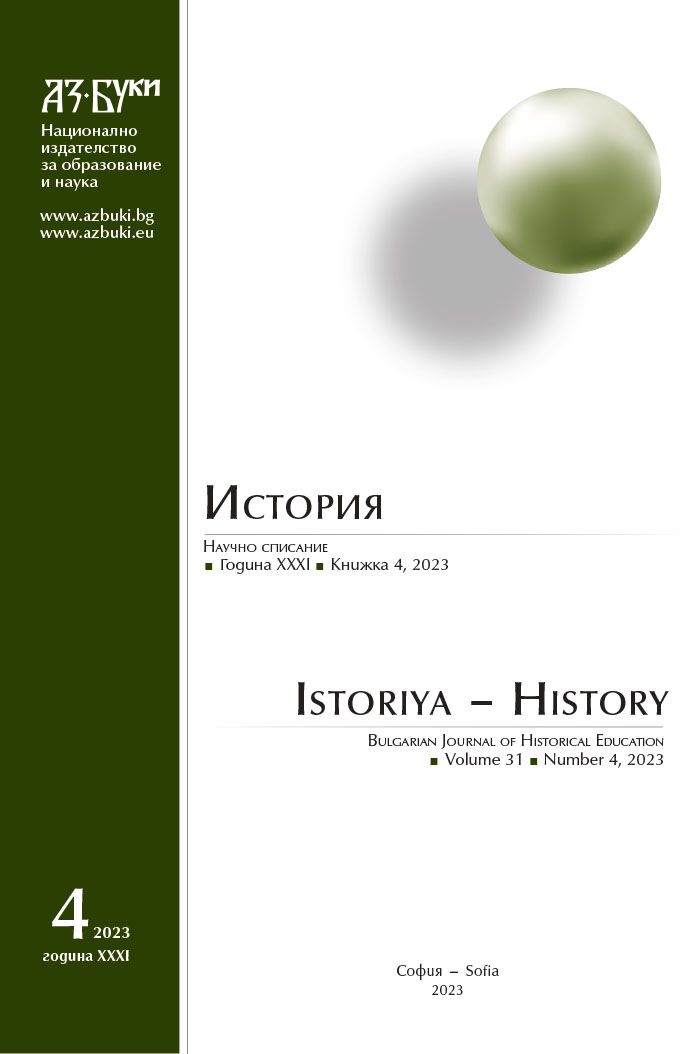
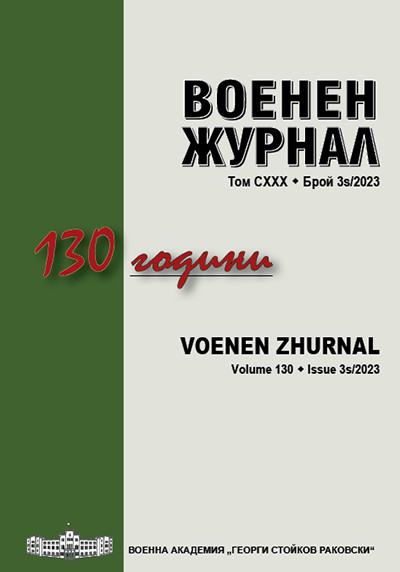
The article examines the actions of the 9th Infantry Pleven Division in the Second Balkan (Inter-Allied) War from the memoirs of Ivan Kovashki, Company sergeant major of the 34th Infantry Troyan Regiment. These memories are a valuable source for the actions of the division as well as his 34th Regiment. The memoirs provide first-person information not only about the course of hostilities, but also about some fateful moments related to the soldiers’ mutinies in the division, saving the regiment’s flag, and relationships between officers and soldiers. A comparison is made between the facts transmitted through personal memories and the official (archival) documents of the division: relations, operational orders, reports, etc. The goal is to clarify in the most accurate and historically accurate way the reasons that led to the disbandment of the division, as well as to emphasize the heroism of its ranks who remained loyal to their oath to the King and the Fatherland.
More...